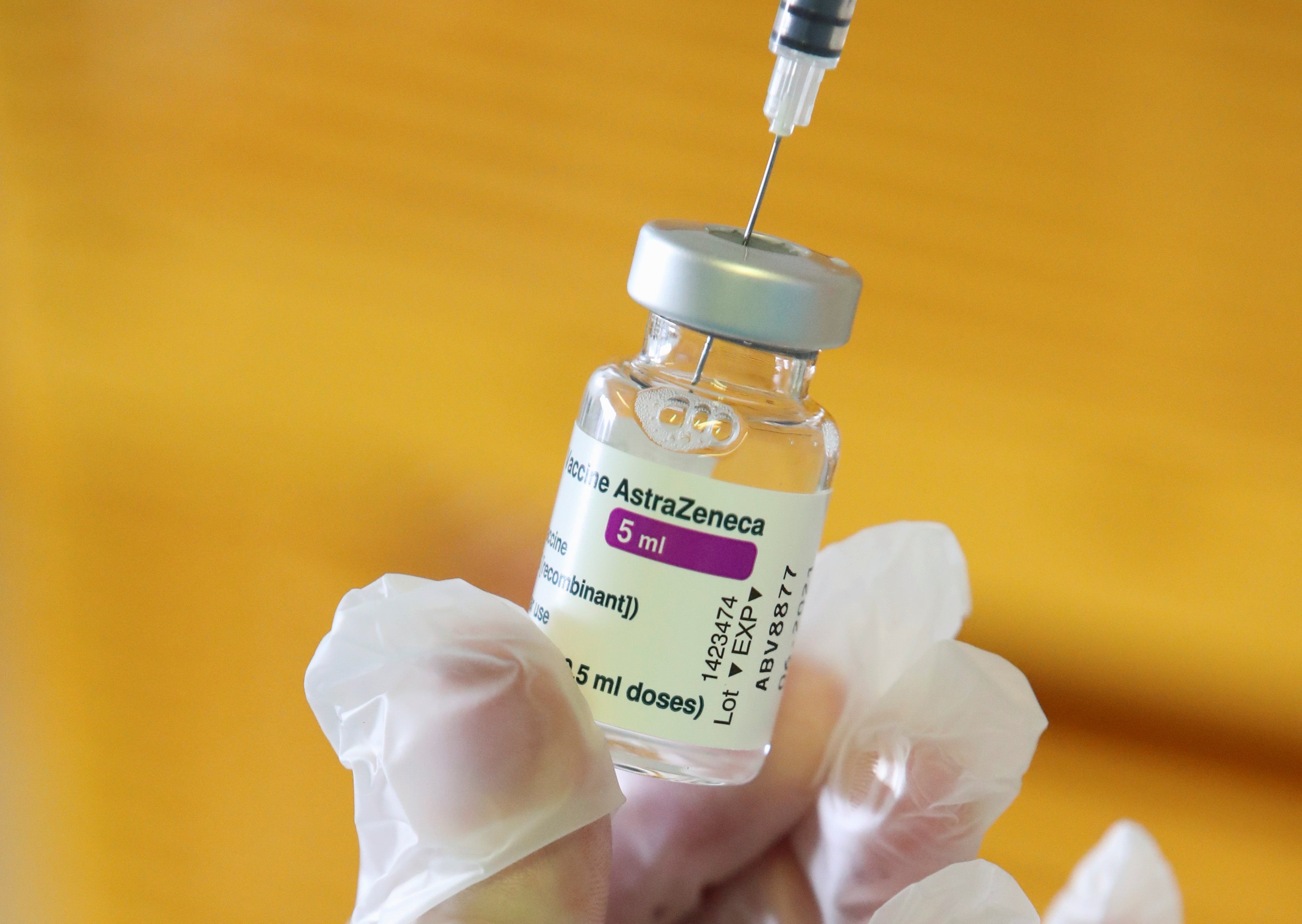Family of British man who died from blood clot after AstraZeneca vaccine urge public to keep getting jab
Nick Astles was ‘extraordinarily unlucky’, family says

Your support helps us to tell the story
From reproductive rights to climate change to Big Tech, The Independent is on the ground when the story is developing. Whether it's investigating the financials of Elon Musk's pro-Trump PAC or producing our latest documentary, 'The A Word', which shines a light on the American women fighting for reproductive rights, we know how important it is to parse out the facts from the messaging.
At such a critical moment in US history, we need reporters on the ground. Your donation allows us to keep sending journalists to speak to both sides of the story.
The Independent is trusted by Americans across the entire political spectrum. And unlike many other quality news outlets, we choose not to lock Americans out of our reporting and analysis with paywalls. We believe quality journalism should be available to everyone, paid for by those who can afford it.
Your support makes all the difference.The family of a man who died from a blood clot after receiving the Oxford-AstraZeneca Covid-19 vaccine has urged people to continue getting the jab, underlining that he had been “extraordinarily unlucky”.
Nick Astles, 59, died in hospital on Easter Sunday after suffering a blood clot on the brain.
Mr Astles, who was the first named person believed to have died from the side-effect linked to the vaccine, had received his first dose on 17 March and suffered headaches and loss of vision for 10 days before his death.
In an interview withThe Telegraph on Wednesday, Mr Astles’ sister said although his family was “furious”, it encouraged people to keep getting the Oxford vaccine because it meant that “fewer people will die”.
Dr Alison Astles said the 59-year-old solicitor had been “extraordinarily unlucky” and urged anyone who experiences any long-lasting side-effects after receiving the vaccine to seek medical help.
Read more:
- ‘Link’ between AstraZeneca vaccine and blood clots, EMA official says
- Are younger people at risk of blood clots linked to AstraZeneca vaccine?
- How worried should you be about possible AstraZeneca vaccine blood clot link?
- AstraZeneca vaccine blood clots: What are the symptoms to look out for?
- A timeline of the AstraZeneca vaccine
It comes as it was announced that people under 30 will be offered an alternative to the AstraZeneca vaccine as evidence emerges of a link between the jab and extremely rare blood clots.
The government’s Joint Committee on Vaccination and Immunisation has said that healthy adults aged between 18 and 29, who have no underlying health conditions or risks from coronavirus, should be offered the Pfizer or Moderna vaccine when vaccines are rolled out to their age group.
The UK’s Medicines and Healthcare products Regulatory Agency (MHRA) said there had been 79 cases of a blood clot condition known as thrombocytopenia. Among these cases – all of which occurred after the first dose of the vaccine – 19 people have died. Three were under 30.
The balance of risk remains in favour of taking the Oxford vaccine for the majority of the population: 20 million doses have been administered across the UK, with an estimated 6,000 lives saved, based on the average death rate from Covid. This would make the risk of a rare clot around one in 250,000.
Meanwhile, campaigners and politicians have compared the blood clot risk posed by the jab to that associated with taking the contraceptive pill. Dr Peter Arlett, head of data analytics at the European Medicines Agency (EMA) said the side-effect is seen in around four in 10,000 women who take the pill over the course of a year.
The decision to offer alternative vaccines to under-30s was taken because young people have a far lower risk of hospitalisation and death from Covid-19.
June Raine, chief executive of the MHRA, said: “Based on the current evidence, the benefits of the Covid-19 vaccine AstraZeneca against Covid-19 and its associated risks, hospitalisation and death, continues to outweigh the risks for the vast majority of people. The balance of benefits and risks is very favourable for older people, but it is more finely balanced for the younger people.”
The UK’s medicines regulator advises any patient who experiences symptoms four days after vaccination to seek medical advice. This includes a severe or persistent headache or blurred vision, shortness of breath, chest pain, leg swelling or persistent abdominal pain, or unusual skin bruising or pinpoint spots beyond the injection site.
Join our commenting forum
Join thought-provoking conversations, follow other Independent readers and see their replies
Comments